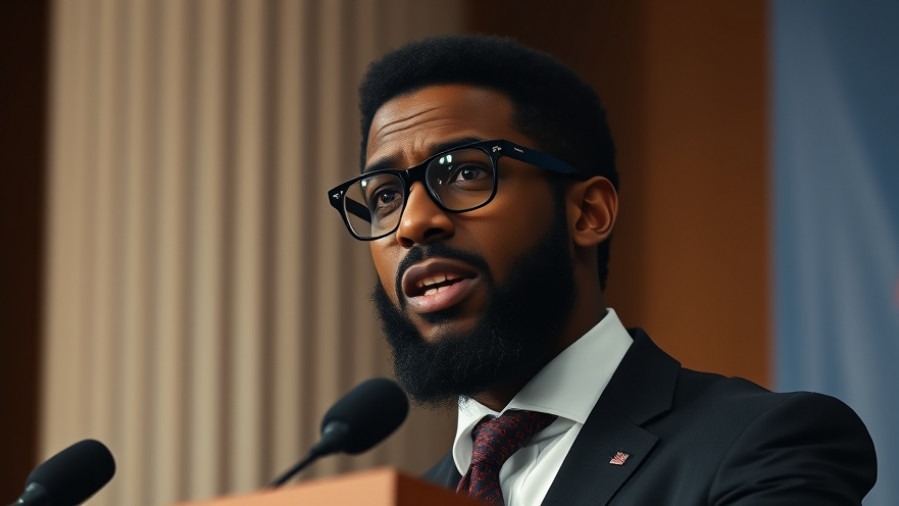
The Financial Stakes of Presidential Cuts
The escalating political landscape often puts funding at the center of conflicts, particularly when it comes to essential services. Brandon Johnson, the mayor of Chicago, accuses former President Trump of operating "well outside the bounds of the Constitution" to obstruct necessary funding aimed at addressing emergency needs. These emergency funds play a pivotal role in ensuring communities can respond effectively to crises, whether it's acquiring portable generators for disasters or securing critical medical equipment. With many municipalities facing economic challenges, such funding can be the difference between life and death for constituents.
In 'Brandon Johnson Accuses Trump Of Working 'Well Outside The Bounds Of The Constitution' To Cut Funds,' the video highlights a significant dispute over emergency funding—a topic that opens the door to a deeper analysis of its implications on local governance.
The Importance of Emergency Funds
Emergency funds are more than just a line item on a budget; they are vital resources that ensure communities remain safeguarded against unforeseen circumstances. The president's act of withholding these funds can severely hinder the ability of a city to maintain safety and order. In Chicago, Johnson argues that his proposed budget is not simply an exercise in fiscal responsibility, but a necessary measure to protect residents. He emphasizes the urgent need for resources that empower local government to react swiftly in times of crisis.
Legal Implications of Fund Withholding
The legal underpinnings of Johnson's lawsuit hinge on the Constitution. It raises an important question: how much power does a president have to manipulate funding at a local level? Johnson argues that Trump's actions could lead to severe ramifications, not just for Chicago, but for cities across the country. By exploring the boundaries set by the Constitution regarding federal funding and local governance, this case could set significant precedents for future political maneuverings and interpretations of presidential power.
National Reactions to Local Conflicts
The conflict encapsulated by Johnson’s situation is emblematic of larger national issues. Political disputes frequently devolve into battlegrounds that affect local communities. Through his advocacy, Johnson seeks not only to secure funds for Chicago but also to spotlight broader systemic failures in how federal resources are allocated. His stance resonates beyond Chicago; it questions the nationwide implications of political decisions that directly impact public safety and community welfare.
A Crisis of Governance
The backdrop to this legal confrontation underscores a crisis in governance: the fight for federal funding reflects deeper ideological divides within the U.S. The implications stretch into federal legislation and national budget discussions. Trump's administration has often been critiqued for its handling of funds—raising questions about transparency, accountability, and commitment to public welfare. Such issues are not isolated; they contribute to a growing discontent among citizens regarding trust in government officials to safeguard their interests.
Fed-Up Local Leaders Call for Change
As local leaders like Johnson stand up against perceived overreach by the federal government, they find themselves on the frontlines of a much larger battle. This isn't merely about funds but about the autonomy of cities to govern themselves and the rights of their constituents to access resources crucial for survival. As this feud unfolds, it may inspire other leaders across the nation to take a stand against what they view as unlawful withholding of vital funds.
In light of these developments, it’s essential for communities to understand the stakes involved not only locally but nationally as well. Johnson's assertion that he will utilize every tool available to him provides a rallying cry for others facing similar challenges. Ultimately, this conflict shines a light on the delicate dance between state and federal authority, calling attention to how governance ultimately involves a complex web of responsibilities to local constituents.
As the legal battles continue, it will be crucial to monitor how these issues evolve and what they signify for future political landscapes. Awareness and understanding of how federal actions ripple into local domains can galvanize communities to advocate for their interests and ensure their emergency needs are met.
 Add Element
Add Element  Add Row
Add Row 



Write A Comment